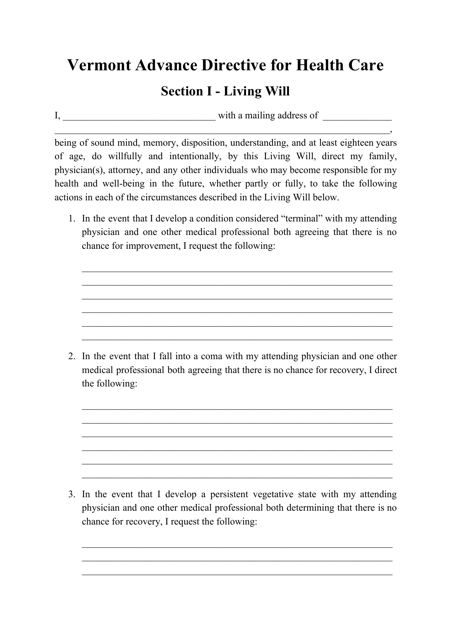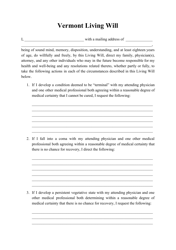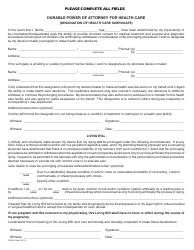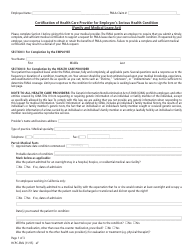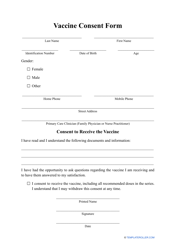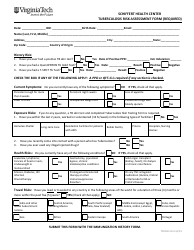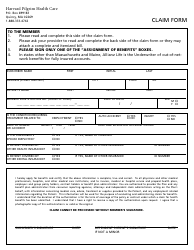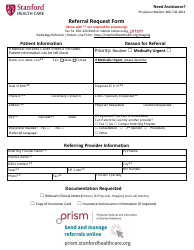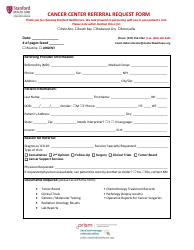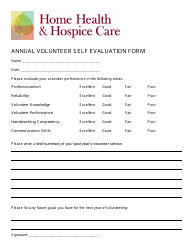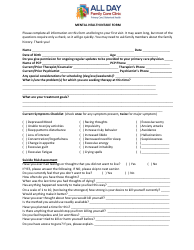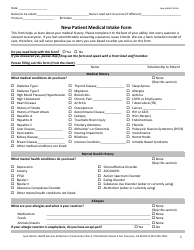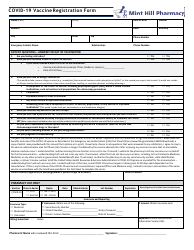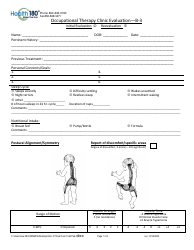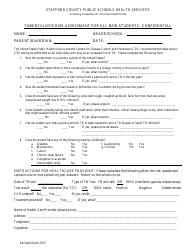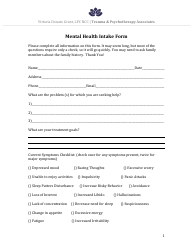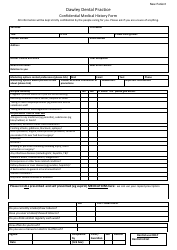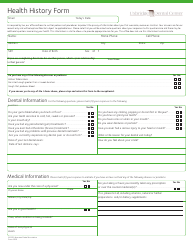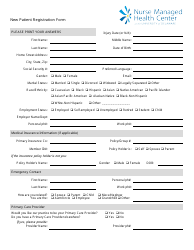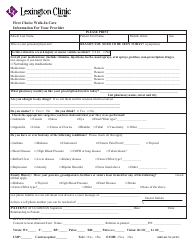Advance Directive for Health Care Form - Vermont
A Vermont Advance Directive for Health Care ensures that an individual's wishes regarding health care are carried out even in situations when they are unable to make them known due to a terminal illness or being unconscious or too ill to communicate. There is a difference between this form and a Living Will in Vermont. A Living Will is a part of the Advance Health Care Directive paperwork that covers end-of-life treatment and takes effect only in the event of a terminal illness.
Advance care planning involves learning about the types of decisions that might need to be made, considering and adjusting those decisions ahead of time, and then letting others - both the individual's family and their health care providers - know about their medical treatment preferences.
A Vermont Advance Directive is defined and regulated by Title 18, Chapter 231 . The document must be witnessed by two (2) individuals eighteen (18) years of age or older and can be stored in an online registry provided to you by the Vermont Department of Health. You can download the form through this link or make your own document with our online form-building application.
What Is a Vermont Advance Directive?
An Advance Directive is a document in which an individual states their preferences regarding health care procedures that become effective when they are no longer able to make decisions for themselves. The contents can be updated and changed as often as the individual wishes.
An Advance Directive for health care includes two parts in total:
- A Living Will - a specific type of Advance Directive which can also be used on its own - is a signed and witnessed document called a "declaration" or "directive" with instructions for an attending physician to withhold or withdraw certain medical interventions once the signer is no longer able to verbally make decisions about medical treatment.
- A Durable Power of Attorney for Health Care - otherwise known as a Health Care Proxy - is a notarized document in which the signer designates an agent to make health-related decisions on their behalf.
How to Write an Advance Directive in Vermont?
- Decide on whether you want to include a Living Will in your Advance Health Care instructions.
- If you decided to include a Living Will be specific about such things as CPR, breathing machines, antibiotics, kidney dialysis, tube-feeding, and certain surgical procedures that you are willing to authorize.
- Discuss your decisions with your partner or spouse, your doctor, and your attorney.
- Elect a decision-maker - a health care proxy or agent. Choose someone you believe will be able to follow your wishes whatever those may be. This will help ensure that your wishes are carried out correctly and in full.
- Give a copy of the document to your health care proxy and ask for it to be kept in a safe place. Keep the original in an easy-to-find place. Do not lock it in a safe-deposit box or filing cabinet that only you can access.
